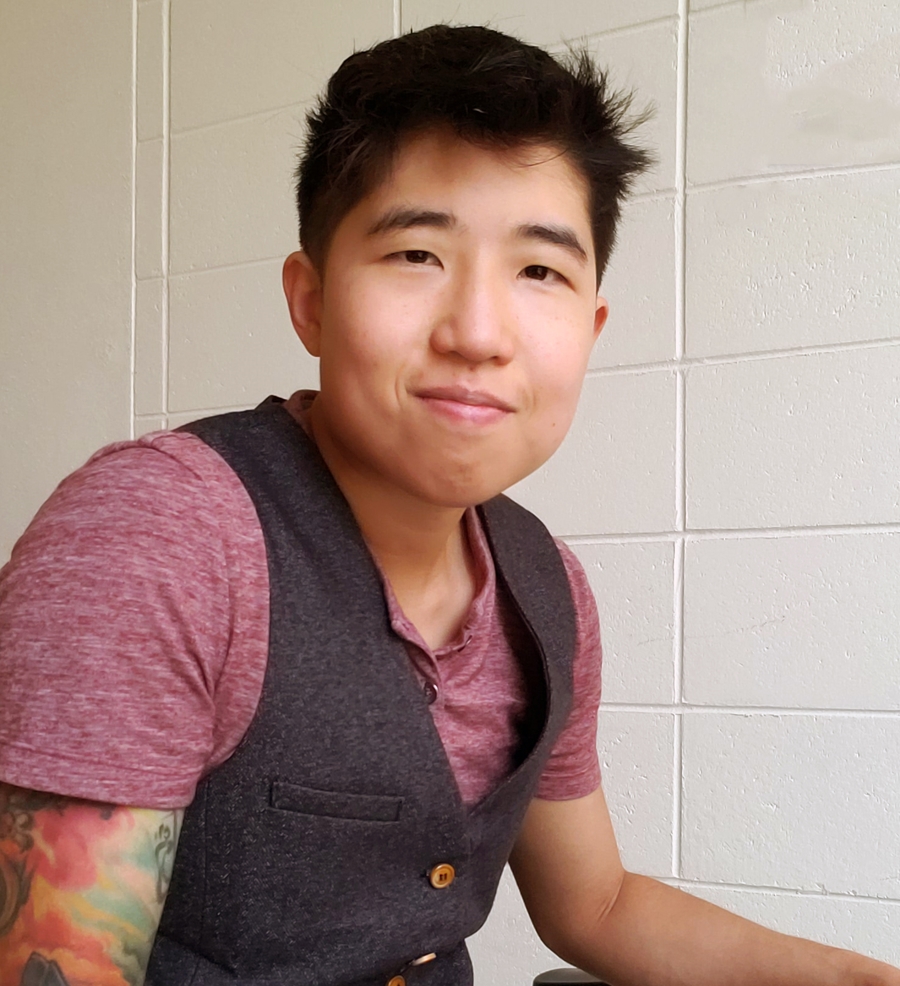Jo Hsu, assistant professor in the Department of English at the University of Arkansas, specializing in rhetoric and composition, has recently had an article published as the lead essay in a special issue of the journal Women's Studies in Communication. The special issue is titled "The #MeToo Moment: A Rhetorical Zeitgeist."
Hsu's article, "(Trans)forming #MeToo: Toward a Networked Response to Gender Violence," argues that mainstream articulations of #MeToo have relied on a discriminatory criminal legal system that often perpetuates violence against people of color, queer, transgender, poor, and/or disabled people. Within this system, defendants are often required to fit expectations of innocence shaped by racialized gender stereotypes. Those stereotypes make it difficult for many minorities to fit the profile of "perfect victim."
Moving away from the individualistic focus on perpetrator and victim, Hsu uses critical trans theory in their article to instead examine the social structures that enable sexual violence. Highlighting the stories and organizing campaigns of incarcerated survivors — who, by necessity, cannot rely on the criminal legal system — Hsu argues that these individuals and their advocates respond to gender-based violence in ways that expose the abusive mechanisms of state and social institutions.
Hsu centers a lot of their analysis in the article on the rhetorical innovations of Survived and Punished (S&P), an organization that defends and advocates for criminalized survivors of sexual and domestic violence. After demonstrating how S&P connects individual stories to cultural forces, Hsu argues that any substantive response to gender-based violence will need to address the historical and systemic structures that enable it.
Hsu has long admired the academic work and public dialogue that are encouraged and promoted by Women's Studies in Communication. "[This journal] has played an influential role in advancing rhetorical scholarship informed by feminist methods and ethics," Hsu said. "As a student, I benefited a lot from this publication and the conversations it enabled. I have tremendous respect for both the editor of the journal (Dr. Kristen Hoerl, who just finished her editorship) and the editor of this special issue (the university's own Dr. Lisa Corrigan), and was grateful for the opportunity to work with them."
Hsu's interest in writing an article on #MeToo originated from what they were seeing being discussed on university campuses, and also by the public at large, and what appeared to Hsu to be routinely left out of those dialogues.
"I noticed how much of the conversation surrounding #MeToo — both within and outside of academic research — overlooked the very important work that grassroots organizations have been doing in response to gender-based violence," Hsu said. "These folks have been protecting one another and fighting for systemic transformation long before the celebrity-centric iteration of #MeToo received major media attention."
By writing their most recent article, Hsu strove to acknowledge the work of grassroots organizations and "to (re)direct energy and resources toward facilitating their visions of redressing gender-based violence."
Most of Hsu's research and teaching focus on how story scaffolds our ways of knowing and forms of social belonging — in other words, how narrative (re)makes our shared worlds. While Hsu's projects span a range of historical and social contexts, for the most part, they look at how individual stories are both informed by and can in turn pressure dominant social understandings, practices and policies.
These ideas come together in a class that Hsu teaches at both the graduate and undergraduate level on "Storying Social Change." Most of Hsu's classes are informed by feminist, critical race, queer and trans theories, as well as disability studies. They try to emphasize how the development of these knowledges and related social movements are deeply entangled in U.S. social history.
In addition, Hsu will be leading a Gender Studies Colloquium on how stories participate in (re)configuring our shared worlds from 5:30-7 p.m. Nov. 21 in J.B. Hunt Room 144. The title of the event is "Narrative Insurgence: Queer Diasporic Storytelling and Subversions of the American Dream."
Contacts
Leigh Sparks, assistant director of the M.A. and Ph.D. programs
Department of English
479-575-5659, lxp04@uark.edu
